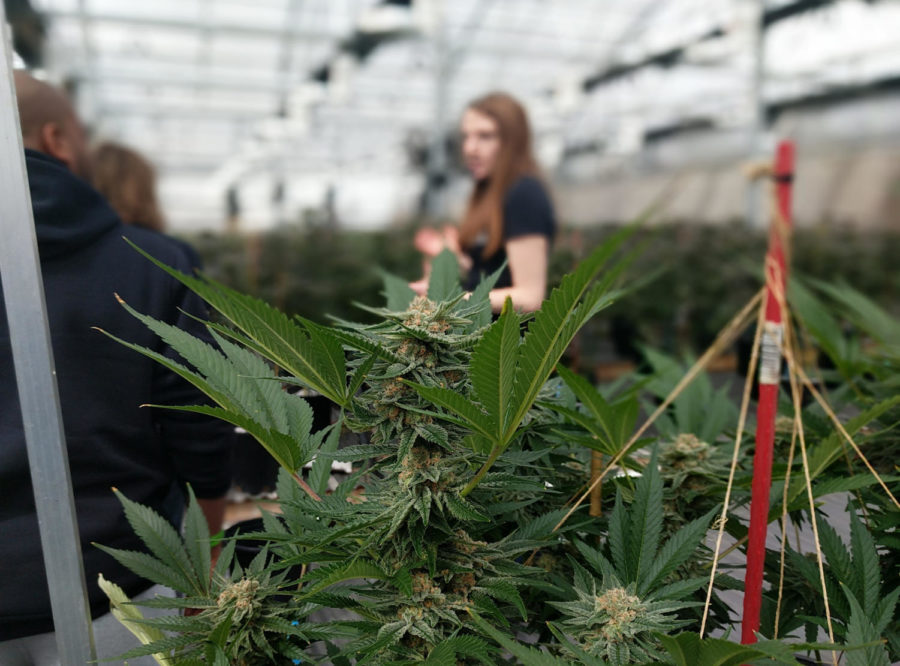Weeding Out the Facts
Teens are disproportionately affected by marijuana, the plant pictured above.
An ordinary slice of pizza should take about three minutes to reheat in a pizza oven. Mine took 10. The date was May 3, 2018, and I went to Cosmos with my dad. The high school-aged employee taking our order wore a marijuana-themed scarf with a lighter tucked into it. Although unprofessional, we thought nothing of it. As the time dragged on and we were still waiting for our slices, my dad and I decided to ask the employee with the marijuana attire whether the slices were ready. He answered with a startled jump, and his 1000 yard stare focused in. He had forgotten about the slices entirely, and when he opened the oven, smoke came billowing out; our slices were burned to a crisp.
Colorado was the first state to legalize recreational cannabis use for persons aged 21 and up. “As a result of legalization, there is no longer any stigma surrounding marijuana for underage persons,” says Officer Biekert, Boulder High School’s Resource Officer. Because marijuana has become so easy to access for people over 21, the substance has found its way to many high school students. “So I think you’re seeing some early signs and possibly long-term addictions starting in high school,” continues Officer Biekert. Many students or parents don’t understand the impact on teenage brain development or their physical health. Especially in Boulder, many residents think of the drug as a way to relax, be free, and have fun.
But there is a much more sinister side to the drug. The brain takes until the mid-’20s to fully develop, but high school students are only 15-18. 45% of high school students report that they have smoked marijuana. Without fully developed brains, they are adversely affected by marijuana. In a report from the American Psychological Association, the association states that many users experience difficulty thinking and problem-solving, memory problems and learning issues, and difficulty focusing. Marijuana can also lower a user’s IQ by up to 6 points, states the American Psychological Association. As well as affecting the brain, “marijuana acts as a gateway drug into harder drugs such as cocaine,” says Officer Biekert. Once a user is on the drug path, there are plenty of options to sustain a high, many of which tend to be deadly.
So how can Boulder High School and schools across the nation reduce the use of marijuana in teens? Officer Biekert says, “I think education is the biggest step. It needs to be a constant message rather than a once a semester, or even once a year reminder.” If a large majority of high school students were to get educated on the dangers of marijuana use, they could decide whether or not to use it. Marijuana will always be easy to obtain, but with a competent education system, the stigma that marijuana used to hold would re-enter.

Jonathan Stafford is a senior at Boulder High School this year and will be taking on the role of editor-in-chief. This is his third year with The Owl. He has always liked writing and sharing his opinions. He looks forward to sharing his thoughts and opinions with the Boulder High community. When not in school, Jonny enjoys playing basketball and baseball, fantasy football, hanging out with friends and family, and being out in nature. He feels that journalism is a great way to educate the general population while expressing his own opinions. One debate he feels passionate about is the grape debate. When it comes to this debate, he feels that purple grapes are superior to any other type of grape.


